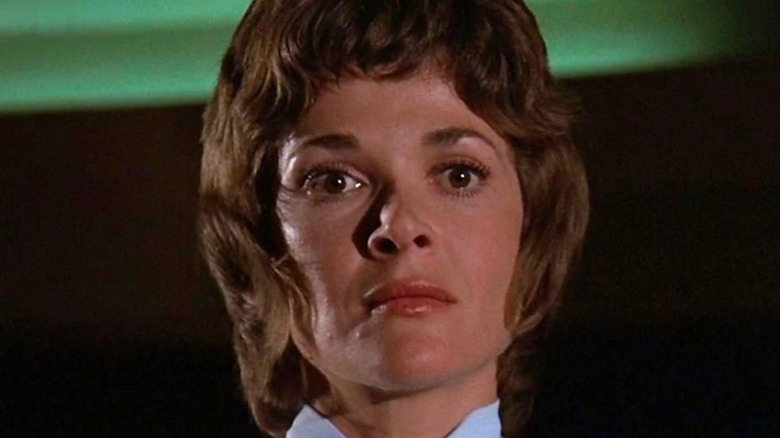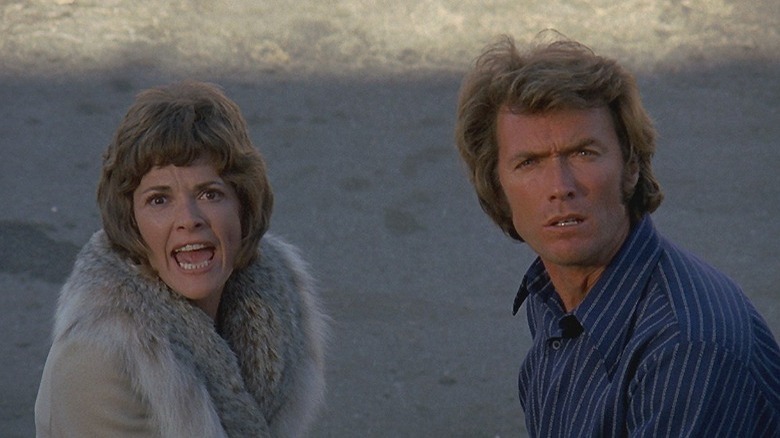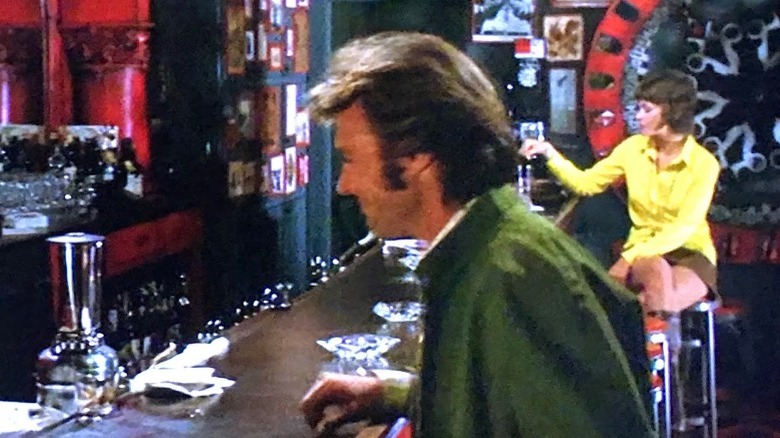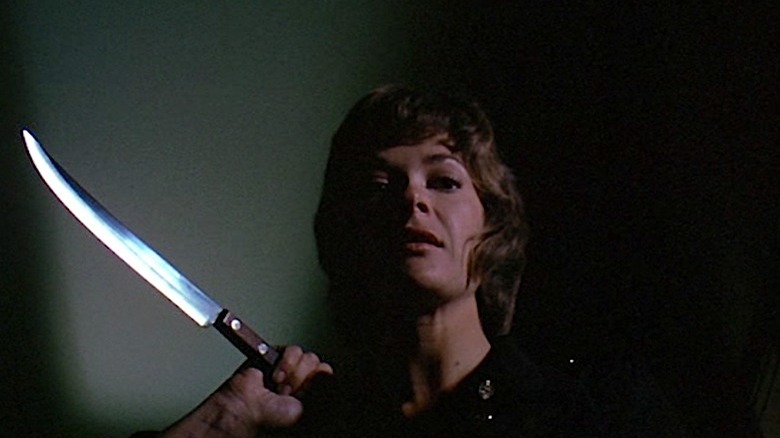Clint Eastwood's Directorial Debut Helped Launch Jessica Walter's Career
Clint Eastwood's 1971 directorial debut, "Play Misty For Me," rings with the same confidence he would bring to every film he's made since. In most of Eastwood's work, clear, uncomplicated, but elegant filmmaking mingles with strong performances (from non-actors and professionals alike) to bring any different genre to life. There's an unvarnished vitality to those movies, and "Misty," shot on location in Carmel on the Monterey Peninsula, has that in spades.
The key to "Play Misty For Me" goes beyond the movie's location photography (with its beautiful, threatening crashing waves) and even Eastwood's promise as a first-time filmmaker. To develop a psychological thriller like this, you need a villainous performance that can elevate the premise, and catapult it past leaps of logic. You need an actor who is compelling and unexpected, with a humanity to match their own willingness to harm innocent bystanders. You need someone you understand and fear at the same time: an actress like Jessica Walter.
As Dave Garver (Clint Eastwood) works his late-night jazz show disc jockey shift, he gets a phone request for Erroll Garner's "Misty," the voice on the line that of a determined, enigmatic woman. Later that night, he meets the same woman at a bar, his usual spot, run by Murphy (regular Eastwood director Don Siegel), and the two get to talking. He doesn't know she's a fan, but when they get back to his home, she tells him all about it.
Walter's skills
That even early on we notice something amiss about the woman, Evelyn (Jessica Walter), is a testament not just to Eastwood's filmmaking — it's a testament to Walter's canny internal acting, her ability to convey danger with a twinkle in her eye. This ability served her especially well in the comedy of "Arrested Development," where her role as domineering matriarch Lucille Bluth gave her something of a late-in-life career renaissance.
Talking about her love for villainous roles (specifically her role as Evelyn), Walter would call them "juicy, much better than playing the vanilla ingénues." As Evelyn's desperation and hunger for Dave continues to reach a terrifying pitch, it goes beyond juicy. Walter's humanity gives the performance an extra edge – as she says in the same interview, "it's not that difficult to find the rage or the anger."
As Roger Ebert noted in his review, "mostly the film's terror comes from the fact that the strange woman is capable of anything."
Strings attached
Despite Dave's request (and Evelyn's agreement) that there are "no strings attached" after they sleep together, she immediately begins to ignore it, inserting herself into Dave's life more and more often. She embarrasses him while he talks with friend and co-worker Al Monte (James McEachin) and begins to bring in groceries. When he's nice to her, she sparkles, full of love (she even writes their names into a heart on his mirror), and when he's not, her mood darkens.
Since "Misty" isn't an especially sensitive portrait of mental illness or obsessive behaviors, it can simply put you in the shoes of a victim. By emphasizing Dave's perspective, it turns the normal, mundane activities of his life into moments that Evelyn can take over. When his ex-girlfriend Tobie (Donna Mills) returns to town, he wants a clean slate, to make up for the womanizing it's implied drove her away. But Evelyn has cloned a new key to his home. And she attacks Dave's housekeeper, interrupts a business meeting he has for a DJ gig, and even attempts to slash her wrists in his home. Being kind and consoling, but firm, has led Dave to failure, and he needs another solution.
Psycho killer ending
After Evelyn attacks Dave's housekeeper, she is brought to a psychiatric hospital, and the movie slows down in the wake of her absence, with a long sequence set at the Monterey Jazz Festival as well as a protracted love scene between Dave and Tobie set to Roberta Flack. By this point in the movie, we are so used to Walter's appearances in the background, Evelyn's regular interruptions of Dave's life, that we're still on edge. And in the movie's suspenseful final act, tinged with the words of an Edgar Allen Poe poem, she is let out of the hospital, ready to finish the job. It plays quite a bit like the theatrical ending of "Fatal Attraction."
"Play Misty For Me" was an all-out triumph for Walter, let alone for Eastwood. It helped mark the actress' arrival on the screen (although it wasn't her first role, of course), giving her the chance to play one of film's classic villains, for whom you continue to feel sympathy even after the movie's final shot. The movie's fairly easygoing portrait of a seaside town puts just about every character at odds with her – her demands of Dave and resorts to violence feel totally alien next to everybody else you see. Part of the terror of her emergence from the shadows, knife in hand, is that you really get the sense she's going to use it.



